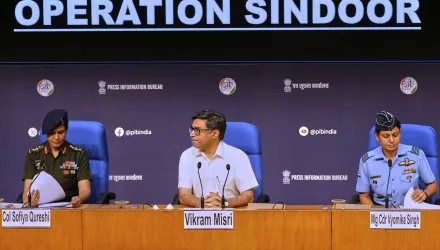Viability of the Nation-State System in the Arab World
Executive Summary:
The so-called Arab Spring has ushered in a great deal of hope that a number of Arab states might begin to develop and engender more socially responsive, economically prosperous and politically progressive indigenous conditions. Unfortunately, in the nine Arab nations I analyze here - Tunisia, Egypt, Libya, Bahrain, Yemen, Syeria, Sudan, Jordan and Iraq - this does not seem to be the case. Indeed, one might say that some or all of these nations are far worse off than they were before their social upheavals.
To understand how and why, I utilize a rubric central to the thinking of the leading theorist in nationalist studies - London School of Economics & Political Science Emeritus Professor Anthony D. Smith. The rubric consists of his six logical corollaries of national independence. In Professor Smith’s view, a nation gains the right to call itself such based on its ability to secure fraternity and equality into homogenous unit, unify a single nation-state of extraterritorial nationals, stress cultural individuality through accentuation of ‘national’ differentia, drive for economic autarchy and self-sustaining growth, expand the nation-state to maintain international power and status, and renew the cultural and social fabric of the nation through sweeping institutional changes to maintain international parity effect the success and independence of the nation-state.
In each of the nine countries I examined, in every instance a lack of one or more (generally most or all) of Professor Smith’s six logical corollaries indicates that the state in question is unable to function effectively in securing a unified nation. It is this incapacity that explains the high rate of failing states among those nations that experienced turmoil in relation to the Arab Awakening revolutions. By utilizing Professor Smith’s six logical corollaries and seeing how their lack is impeding state progress in these nine nations, we gain a better understanding of what prerequisite conditions are necessary before a state can secure survivability, maintain stability, and achieve success.
Read full paper:


